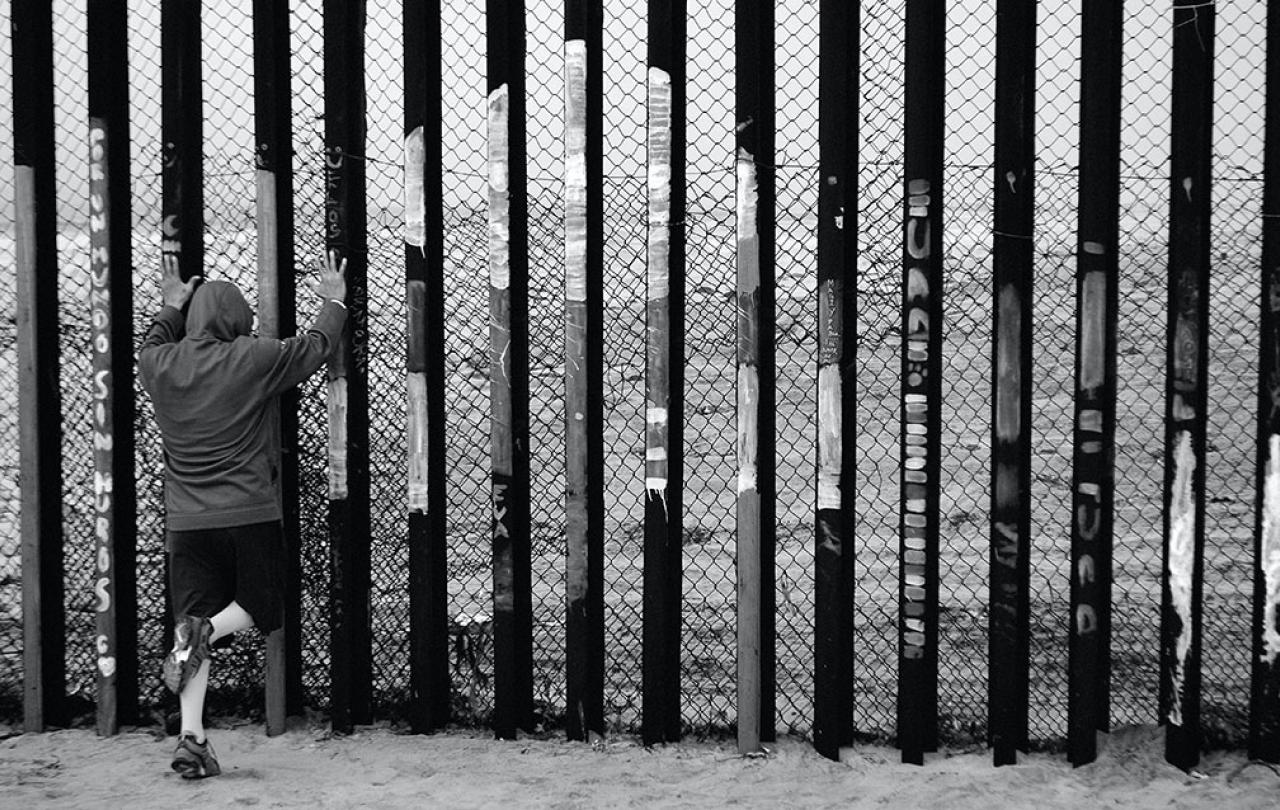
Will Germany deliver Leopard 2 tanks to Ukraine? No? Yes? When? Media discussion of the war that the Russian Federation started against Ukraine in 2014 and that entered a new stage one year ago, currently centres on questions of weaponry. Who else will send tanks? And what about fighter aircrafts? No? Yes? When?
In classical military ethics, which has long been dominated by the so called Just War Theory, these questions fall under ius in bello, the right conduct in war. This also includes discussions on proportionality, military necessity and the differentiation between combatants and non-combatants.
Just War Theory has a long tradition in Christian thought. Church Father Ambrose argued that whoever does not ward off injustice from his fellow man (or woman for that matter) when he can, is as guilty as he who commits it. Ambrose’s student, Augustine, then developed this thought in more detail as he laid the foundations for what could be called a bellum iustum, a just war.
Even before going to war, the criteria of the ius ad bellum, the right to go to war, must be satisfied. These include, for instance, a just cause, legitimate authority, prospect of success, right intention and last resort. We encounter these criteria again in slightly modified form in our modern international law. In view of these guidelines, of Russia’s breach of international law, and of Ukraine’s right to self-defence, the on-going war in Ukraine clearly seems to be a just war. Or is it?
Nothing holy or just
Two points need to be made in this discussion. Firstly, there are no just or holy wars. Period. Or as 150 churches, after the horrors of the Second World War, put it in Amsterdam in 1948: ‘War is contrary to the will of God.’ Wars are always an evil and an expression of the failure of human beings to strive for peace. This also holds true for the war in Ukraine. And this means that we need a new dimension in the debate, namely guilt.
Every action – and inaction – here involves guilt. As the German pastor Dietrich Bonhoeffer, who was killed by the Nazis for his engagement in a plot against Hitler, put it:
‘everyone who acts responsibly becomes guilty’.
And even if we become guilty for the sake of the other person, our guilt remains just the same. Yet, as Bonhoeffer concludes, we trust in the grace of God, who calls us to responsible action. , Bonhoeffer’s ideas have been considered dangerous and easily misused to justify any crime, as forgiveness is always available. Nevertheless, we must acknowledge the reality of guilt that pervades any war, including the war in Ukraine.
Just Peace
Secondly, recent years have seen a new kid on the block: Just Peace Theory. While Just War Theory looks at a conflict from the perspective of violence, Just Peace Theory puts the focus on peace. This includes adding a third set of criteria. Ius post bellum looks at justice after a war. We know that after a conflict is before a conflict. We therefore need to pay more attention to what happens after the weapons finally fall silent.
Here, the experiences of truth and reconciliation processes worldwide can help. Both dimensions belong inseparably together and both already begin during a conflict, not just after it. Truth, for example, requires the documentation of war crimes committed by all parties to ensure the prosecution of war criminals later on. And reconciliation is the conditio sine qua non for sustainable peace.
Russia’s war against Ukraine and its threats against NATO and Western countries demonstrate, not least that after the end of the Cold War, opportunities for genuine and sustainable reconciliation were missed as latent hatred, prejudices and stereotypes were allowed to linger.
Just Peace Theory emphasizes that building peace is an art and a craft. It requires specific skills, training and preparation. It also requires virtues of grace, persistence and forgiveness, Countless documented examples world-wide supply empirical proof that these methods actually work. Perhaps it is worth devoting some of the $2,113 billion (2021) of global annual military expenditure for training non-military approaches to address conflict resolution? To learn how to build peace as much as how to wage war? No? Yes? When?
Pathways to Peace
One such initiative is Pathways to Peace. Aiming at peace, justice and reconciliation in times of war, this initiative is currently being developed through the Conference of European Churches, a group of some 120 member churches in 38 countries. With their long-term involvement and intimate knowledge at the grassroot level, faith actors in civil society seem uniquely positioned to connect people, heal relationships, offer a new social imaginary and facilitate practical help.
The objectives of Pathways to Peace include among others to facilitate safe spaces for honest exchange between Ukrainian and Russian church leaders, to develop a network of church leaders and other civil society leaders for exchange on the preparation of peace or to bring together European youth, in particular Ukrainian and Russian young refugees.
The immense potential of faith actors in transforming conflict and building sustainable peace seems to have gone largely unnoticed in the public sphere. Given the prominence of faith in this conflict, it is about time that all relevant actors in our societies, including faith-based initiatives, joined forces to counter this major crisis of our time.





